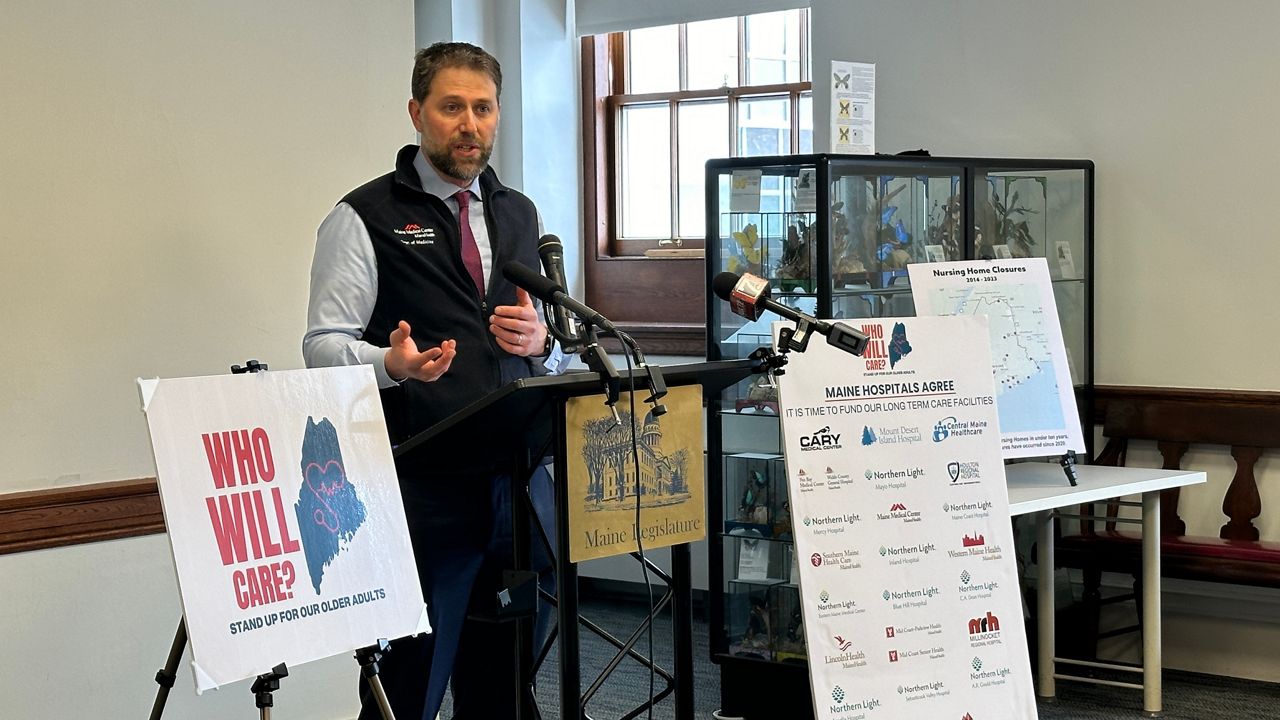An estimated 200 people who need nursing home care are stuck in Maine hospitals each day because of a lack of funding, the head of the state hospital association said Thursday.
“This compromises two things,” Jeff Austin, vice president of government affairs for the Maine Hospital Association said. “First and foremost, the wellbeing of those patients. They belong in a residential setting, not in a hospital.”
The second issue is that they are taking up hospital beds that are needed for other patients, Austin said.
His comments came during a State House announcement that the association and more than two dozen member hospitals have joined the “Who Will Care” coalition, which is urging state lawmakers to fill a $120 million funding shortfall, a combination of state and federal monies.
At the state level, Gov. Janet Mills is proposing to spend $3 million in state funds on the nursing homes, which will draw down an estimated $7 million in federal funds.
But that still leaves the nursing homes far short of what they need, Austin and others said Thursday.
From the hospitals’ perspective, the issue of providing the appropriate level of care has been a problem for 10 years, Austin said. Back then, patients with specific needs had trouble finding nursing home beds in specialty care units, he said.
But now “it’s everywhere.”
“All the nursing home beds are in short supply,” he said. “That means all of our patients, even the most traditionally easy to place patients, are getting stuck.”
Dr. Dan Meyer, director of hospital medicine at Maine Medical Center in Portland, said at his hospital, 60-70 patients each day are awaiting nursing home placement.
Since 2014, more than 50 nursing homes across Maine have closed or switched to a providing a lower level of care, he said. In the greater Portland area, 240 beds have been lost over the last two years.
“We have reached a crisis point,” he said.
To address the need, Maine Medical Center is designing long-term care facilities at the hospital to provide patients with group activities, dental care and other needs.
Yet the trickle-down effect of a lack of nursing home beds means the emergency room sees 10-30 patients a day waiting for an open hospital bed, Meyer said.
The shortage is particularly severe in northern Maine, where the last nursing home in Hancock County recently closed, said Kristin Cyr, vice-president of nursing care services at Northern Light Blue Hill Hospital.
She said a lack of local beds means loved ones who want to visit those in nursing homes will have a longer drive to spend time with a family member.
“Some of them like to go have a meal with them on a daily basis and participate in their daily care,” she said.
Last month, the coalition got significant bipartisan support from Senate President Troy Jackson (D-Allagash) and Sen. Rick Bennett (R-Oxford), both of whom called on the budget writing committee to find the funds needed to support the nursing homes.
Mills proposed setting aside more than $100 million in state revenues to go to the state’s rainy-day fund, but various groups — including teachers and state workers — are working the State House halls to try to get a share of those funds.
Ben Hawkins, director of public affairs for the Maine Health Care Association, said the nursing home coalition will continue its effort to get more funds, pointing out that most people who live in nursing homes are on MaineCare, the state’s health care program for the poor.
“This closure crisis will not fix itself,” he said. “The hospital backlog will not fix itself. The problem is clear and the solution should be clear too.”



